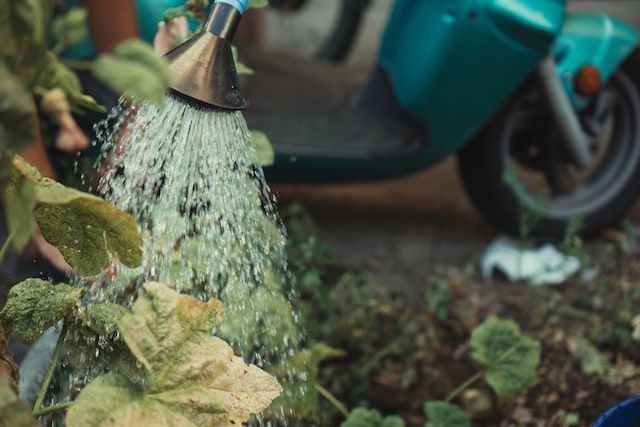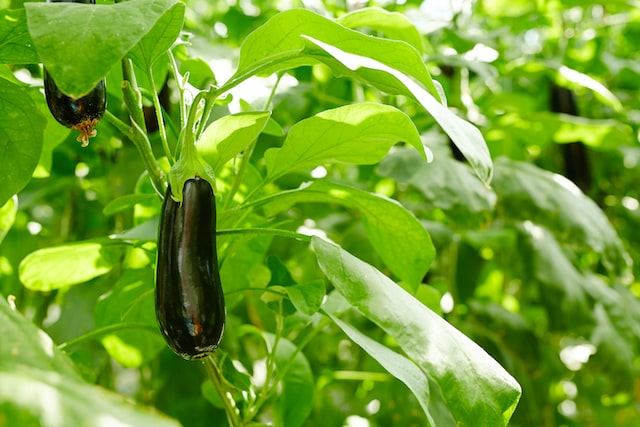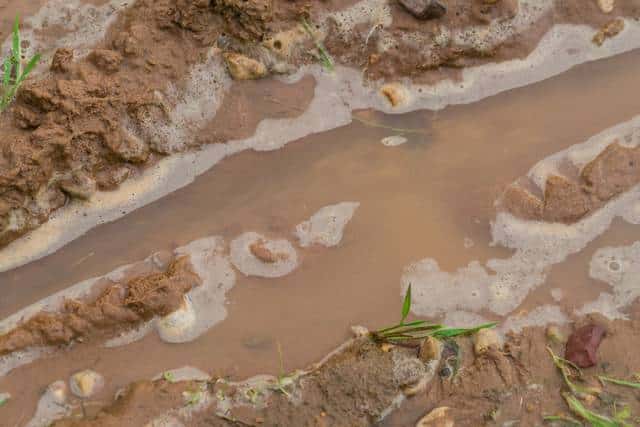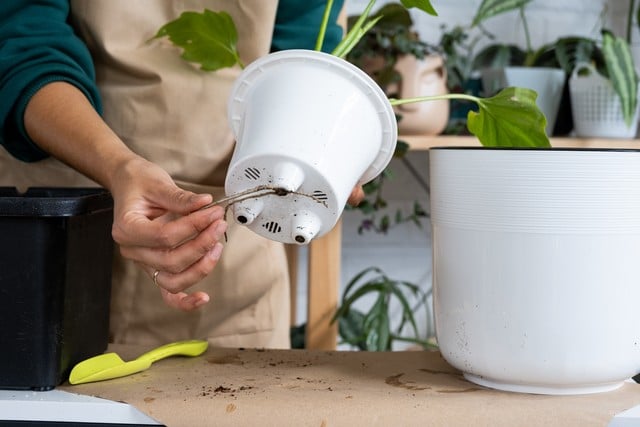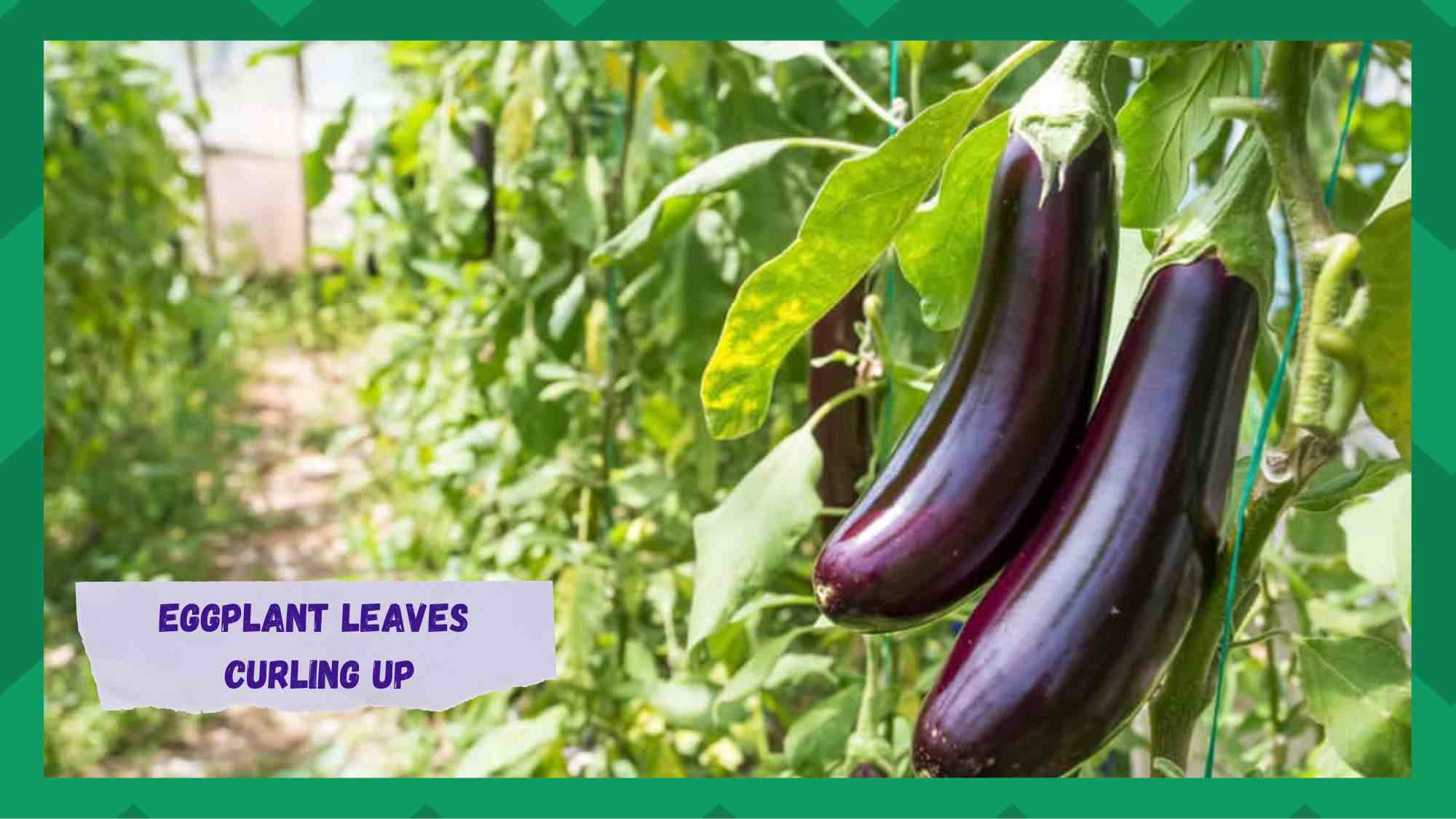
Eggplant or aubergine is a widely grown plant from the Solanaceae family of plants. It usually grows 2-4 feet tall and wide and has purple flowers. It has toxic leaves and flowers, but the eggplant is safe to consume raw and can also be cooked in various recipes.
It is often mistaken for a vegetable, but it is actually a fruit as it grows from a flowering plant.
Landscapers love eggplant for its glossy look and health benefits. It is among the most nutrient-dense vegetables and is ideal for people looking to lose weight.
It is rich in minerals and vitamins, including vitamins K and C. It is high in antioxidants and protects you from cancer and several other diseases. In addition to that, it is recommended for diabetes patients as it regulates sugar levels in the blood.
While growing the eggplant plant in your yard, you may come across a number of problems. Many landscapers have reported that the leaves of the eggplant plant curl up sometimes for no apparent reason. For a landscaper who grew and maintained the plant for months, this sight can be a nightmare.
If you notice that the leaves of your eggplant plant are curling up, know that you are not alone. In this article, we will go through some of the common reasons for this problem, along with a few simple solutions to put a smile back on your face. Let’s dig out!
Eggplant Leaves Curling Up
Here are a few reasons why your eggplant leaves may start curling up.
- Insufficient Water
Improper watering is the main reason for the leaf curling problem in eggplant plants. It’s common knowledge that all plants require water for growth, and eggplant plants are no exception. If you are not watering your plants daily, it may cause their leaves to dry, often leading to this problem.
Eggplant plants do not require much water to thrive. One inch of water per week is enough to keep them in good health. If your plants have not been watered for a while, their leaves may turn yellow and begin curling.
It is important to water the eggplant plants properly for the best results. Keep in mind that they absorb the water from their roots. So, rather than just wetting the leaves, make sure to provide water to their roots.
Furthermore, it is recommended to soak your eggplant plants once a week rather than watering them every few days. This is because short, frequent watering is often associated with shallow roots.
If the leaves have curled up slightly, there is a high likelihood that you can bring them back to their original shape by watering. On the contrary, if you keep neglecting your eggplant plants, they may ultimately die.
Even if they survive, you will notice a difference in their fruit production as the eggplants will be a bit smaller than usual.
- Overwatering
While underwatering your eggplant plants causes the leaf curling problem, overwatering can also damage them. Overwatering causes the roots to rot, and as a result, your eggplant plants will not be able to take up water from the soil.
It is recommended to check the soil before watering the eggplant plants. Water them only if the soil feels dry. If it is already moist, refrain from watering, even if you haven’t watered your plants for a week.
Apart from that, make sure that your pot has a proper drainage system to prevent your eggplant plants from getting overwatered. Drainage allows the excess water to drain freely. If there is no drainage system, the excess water may close off the air pockets in the soil and cause problems for your plants.
Ideally, you want to have a pot with holes at the bottom. After sufficient water is absorbed by the soil, the excess is drained through these holes.
On the other hand, if your pot has no holes, the excess water will have nowhere to go, and the roots will have to sit in the stagnant water, leading to curly leaves and rotten roots.
It is a common misconception that putting gravel at the bottom of the pot allows for better drainage. However, it is not true. In fact, it worsens the situation as the water does not drain through. So, avoid putting gravel or other rocks at the bottom for drainage.
- Pests
If not dealt with timely, pests can also cause the leaves of your eggplant plants to wilt. Spider mites are the usual culprits, as they love feeding on these plants. Apart from this problem, pests can suck out the juice of the leaves, ruining the look of your lovely yard.
So, if your eggplant plants have been attacked by pests, you need to act immediately to avoid irreparable damage to your plants.
Using a pesticide is a great way to get rid of pests in your yard. Nowadays, hundreds of pesticides are available on the market. However, it would be better to consult with a botanist before using an insecticide.
The thing with insecticides is that they will also kill the pests that are beneficial to your eggplant plants. Of course, not all pests are your enemies. They have harsh chemicals and can contaminate the soil. This is why insecticides are often used as a last resort.
Make sure to wear your safety gear to keep yourself protected before applying insecticides. When inhaled or swallowed, they can cause poisoning. So, consider reaching out to your doctor if you develop any symptoms associated with insecticide poisoning, such as nausea, breathing difficulties, vomiting, etc.
While applying pesticide, make sure to apply just enough amount. The instructions are usually given on the package. Make sure to read those instructions and apply them accordingly.
Most people recommend applying it early in the morning when pests are active. And yes, don’t apply it if rain is in the forecast because rain can carry it to water sources nearby, affecting aquatic life.
- Insufficient Sunlight
Eggplant plants thrive in sunlight and require around six hours of sunlight daily. If you have placed them in a shady area, their leaves may get wilted.
So, consider relocating them to a place where they will get direct sunlight for at least six hours. You will notice a change in their leaves as soon as you relocate them.
Moreover, sudden changes in weather can also lead to this problem sometimes. If that’s the case, there is nothing you can do but wait for the perfect season.
The Bottom Line
Eggplants are a nutrition powerhouse and offer lots of health benefits to those who consume them. While growing these plants, you may notice that their leaves curl up sometimes.
More often than not, it happens as a result of improper watering. If your plants are infested by pests, consider using a pesticide to eliminate them. Furthermore, keep them in a place where they will get six hours of direct sunlight.


